Under the slogan “Uniting peoples towards a Plurinational America”, a new RUNASUR Meeting was held at the Casa Nuestros Hijos, la Vida y la Esperanza de Madres de Plaza de Mayo – Línea Fundadora (ex-ESMA).
The activity began with a ceremony of Andean peoples, who invoked the spirits and deities for protection and fruitful development of the meeting.
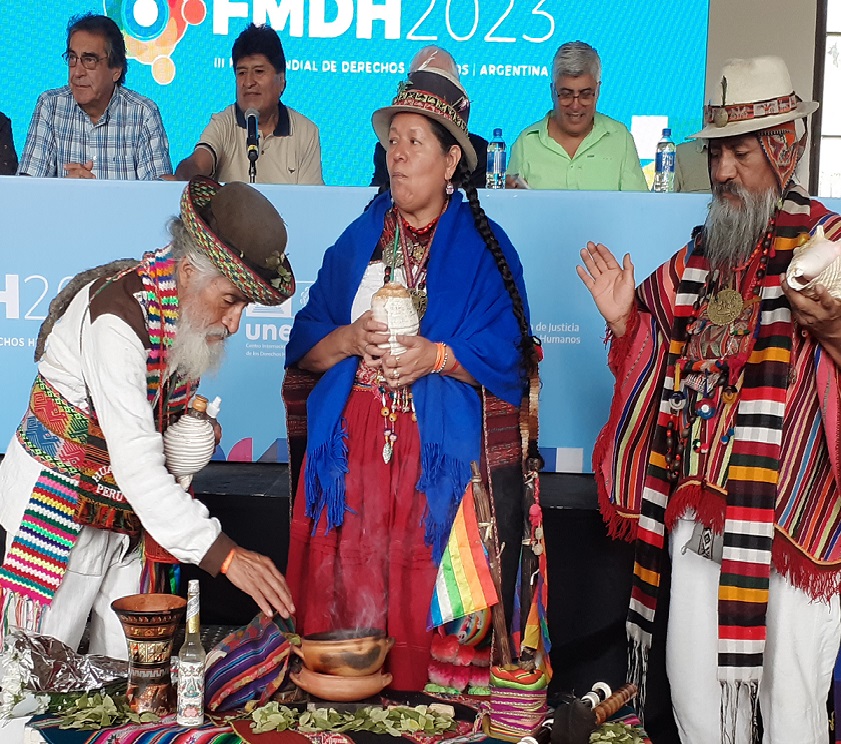
After a brief introduction by RUNASUR coordinator Fernando Huanacuni, former foreign minister of Evo Morales, the secretary general of the Autonomous CTA, Hugo “Cachorro” Godoy, took the floor and emphasized the need to continue safeguarding Latin America and the Caribbean as a territory of peace, “an essential element at a time when the empire in its decadence is sowing wars”.
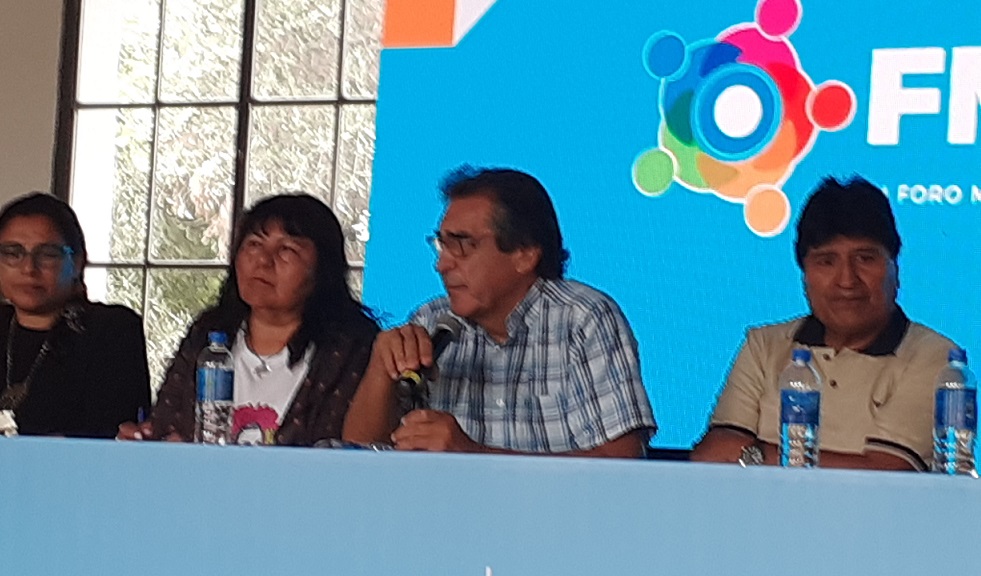
The trade unionist pointed out as the central objectives of the meeting were the sharing of the sense that RUNASUR contributes to the debate and the action in favor of Human Rights as well as to allow the presentation of testimonies of their violation and to try to build a common look among social, indigenous, afro-descendant and trade union organizations on how to face the imperial policies that pretend to violate the popular will and to dominate the region.
Then, the main promoter of the space, the first native indigenous president of Bolivia, Evo Morales Ayma, took the floor, who in addition to celebrating the unity in diversity, highlighted the anti-imperialist and anti-capitalist character of RUNASUR.
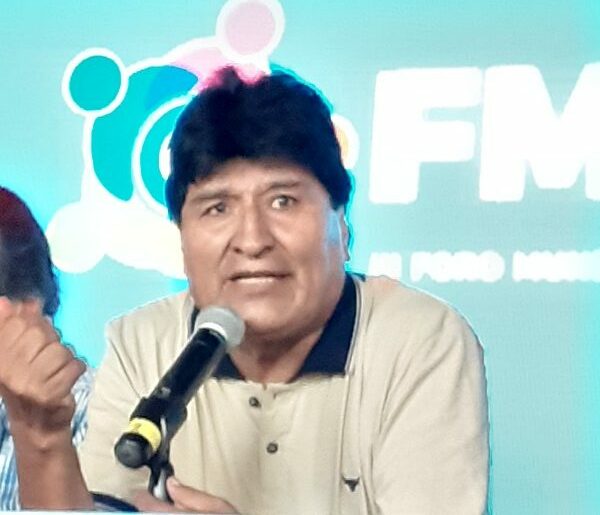
The Bolivian leader detailed with documentary evidence the numerous allusions made by the United States to Latin America and the Caribbean as its “backyard” and the illegitimate interest of appropriation of natural resources, particularly lithium at this juncture.
“200 years after the declaration of the Monroe Doctrine, it is neither possible nor acceptable that we continue to be considered this way,” Morales pointed out. Coup’s d’état against popular governments, he added, is not only against the installation of an economic model of distribution and self-determination but are aimed at preventing us from adding value to our raw materials, as Bolivia’s experience shows.
Hence, “taking an anti-capitalist and anti-imperialist stance is essential to solve social problems”, he continued.
One of the central issues to be debated by the social movements is how to put an end to interventionism and the plundering of natural resources, for which unity is required.
No end, the former president announced that there would be a large RUNASUR meeting in December, coinciding with the date of the 200th anniversary of the announcement of the Monroe Doctrine.
The attendance of Nora Cortiñas, Mother of Plaza de Mayo – Founding Line, who was warmly greeted by the audience on the occasion of her 93rd birthday, was very well celebrated.
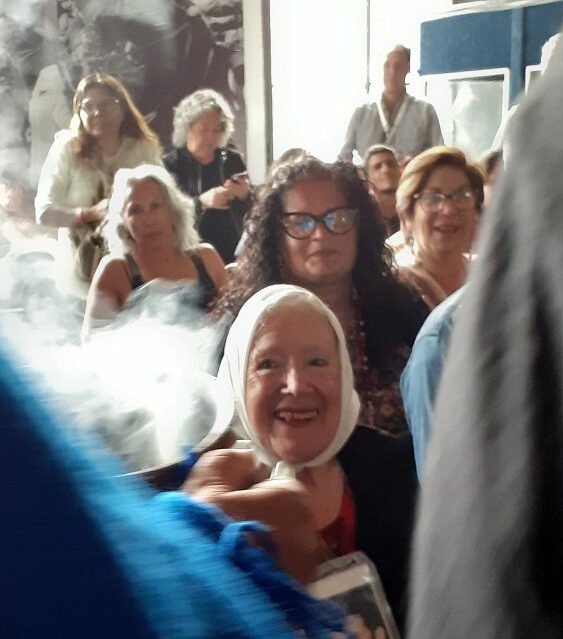
Also outstanding was the participation in the opening panel of Héctor Béjar, former foreign minister of the legitimate president of Peru, now illegitimately deposed and imprisoned, Pedro Castillo Terrones.
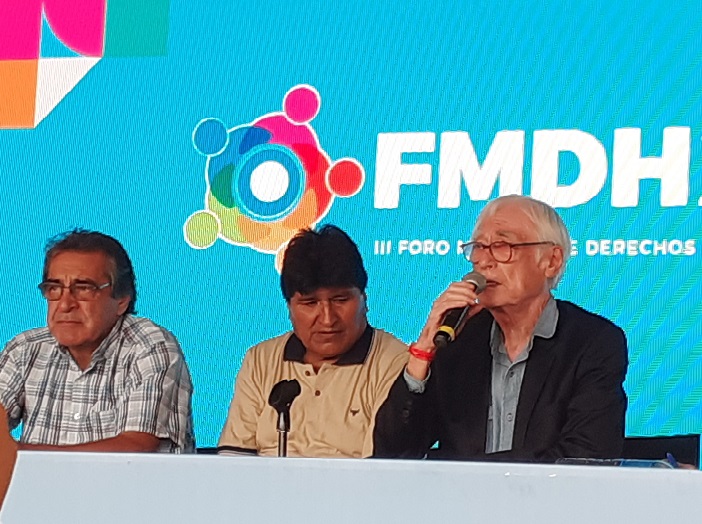
After pointing out that “the true basis of regional integration must be the native peoples”, thus underlining the importance of RUNASUR as an articulation to advance in this direction. The integration organizations of the States depend on the ups and downs of politics, while the peoples are always there. Therefore, “the permanent stable base of CELAC, UNASUR or CAN must be RUNASUR”, he stated.
The Peruvian intellectual made a detailed description of the characteristics of the coup d’état underway in his country and its actors, who in appearance are civilians, but in reality are headed by former military officers, “one of them a war criminal”.
Béjar requested international solidarity by denouncing in all public spaces “with a clear and strong voice” the war currently being waged by the illegitimate government against the peoples who have risen up in protest.
Regarding the numerous consultations received on the solution to the situation, he emphasized that “there is no solution within the legality of the current State”. The solution is a Constituent Assembly – which today is demanded by more than 60% of the Peruvian people – but not a rigged Constituent Assembly as there have been before.
Finally, he explained the modalities of the resistance actions of the Andean and Amazonian communities and of the peasant patrols, which, due to their communitarian and not individual characteristics, are not only destined to continue but will finally triumph.
Other social leaders also took the floor, such as Omar Ramírez Mina of the Bolivian CSUTCB, Humberto Correa, of the Colombian CGT, Silvia Almazán of CTERA/CTA – who emphasized the need for a feminist Patria Grande – and Alejandro Rusconi, representing the Evita Movement.
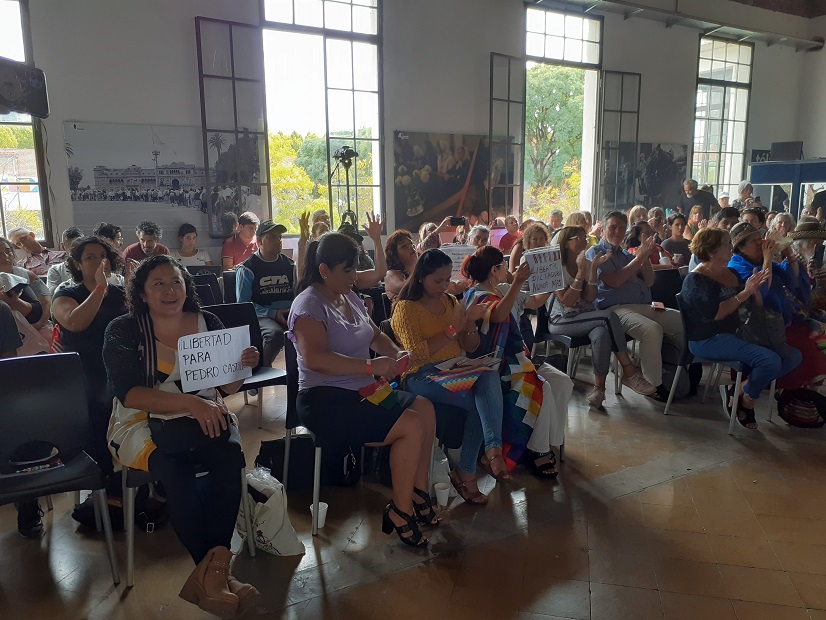
The conclave closed with various testimonies from delegates of the Mapuche people, Peruvian human rights organizations, and other grassroots movements, after which the attendees sang vibrant chants of struggle and solidarity.










